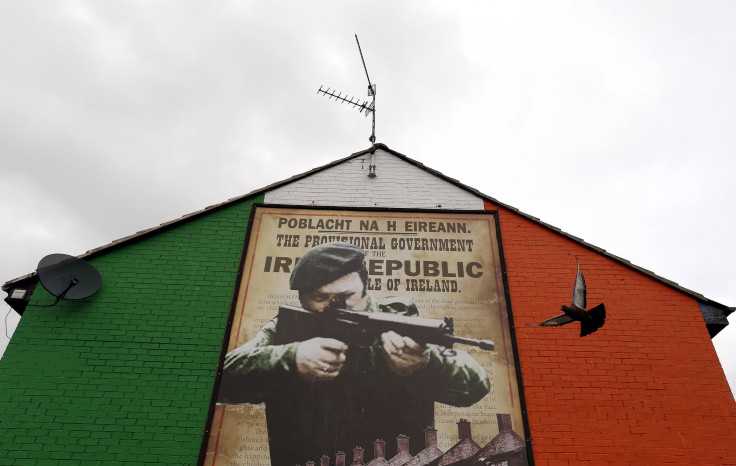Real IRA Bomb Concerns Still Exist On British Mainland, UK Security Services Suggest

The British government issued a warning Friday declaring that the Real Irish Republican Army, a splinter group that has not renounced violence, still poses an “enduring threat” of committing one-off terror attacks in mainland Britain. The group, which has not mounted the kind of sustained campaign waged by the larger Provisional IRA from the 1970s through the '90s, is considered to be dangerous again by U.K. security services.
British terror threat assessments have concluded that the Real IRA and other dissident republicans still “aspire” to target the U.K., according to a report from the Telegraph. The Provisional IRA's ruling body, the Army Council, still exists, according to British security services, although in a reduced role. The Real IRA split from the Provisional IRA in 1997 over disagreements in the talks leading to the Good Friday Agreement, signed in 1998.
“A real terrorist threat persists in parts of Northern Ireland,” said Andrew Parker, the director of Britain's Security Service (also known as MI5). “For every one of those attacks we and our colleagues in the police have stopped, three or four others [could be] coming to fruition.”
Real IRA could launch one-off attacks on mainland Britain, ministers warned https://t.co/k4Z94tf3JQ pic.twitter.com/7weujeFtTW
— The Telegraph (@Telegraph) December 25, 2015
Threat assessments contained in the government’s National Security Strategy said “violent dissident republicans aspire to target Great Britain” and that “some groupings remains capable of conducting one-off attacks, but currently consider Northern Ireland to be their main focus.”
The report comes after MI5 recently warned that the threat from such terror groups is currently four times greater than figures suggest, with some groups reverting to old violent Provisional IRA methods.
In July this year, a bomb was discovered in County Armagh in the southern part of Northern Ireland. When the bomb was attended to by police, a second device detonated, suggesting a level of sophistication not seen since the '90s, according to a U.K. security expert.
Col. Richard Kemp, who became a government counterterrorism adviser and worked in military intelligence during eight tours of Northern Ireland, said using a second device was a common IRA bomb tactic during the worst years of violence.
“People in the security world are increasingly concerned. To date, the threat has not been as sophisticated, but the secondary device threat is maybe a sign that the sophistication is returning,” said Kemp. “The intelligence covering is very good, so while many attacks are attempted, not many get through.”
© Copyright IBTimes 2024. All rights reserved.






















